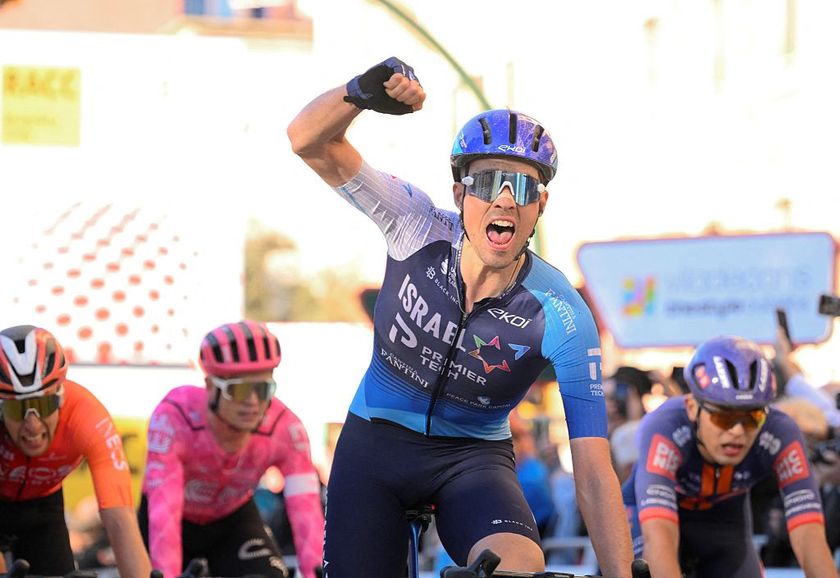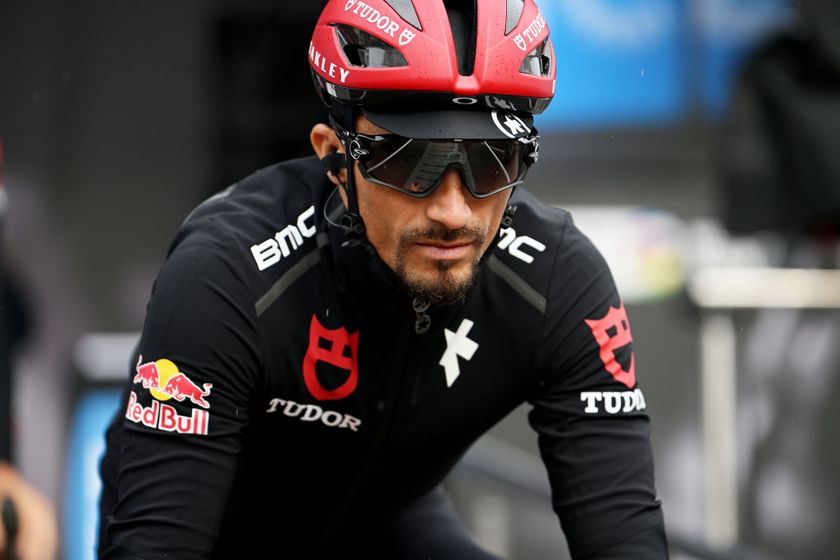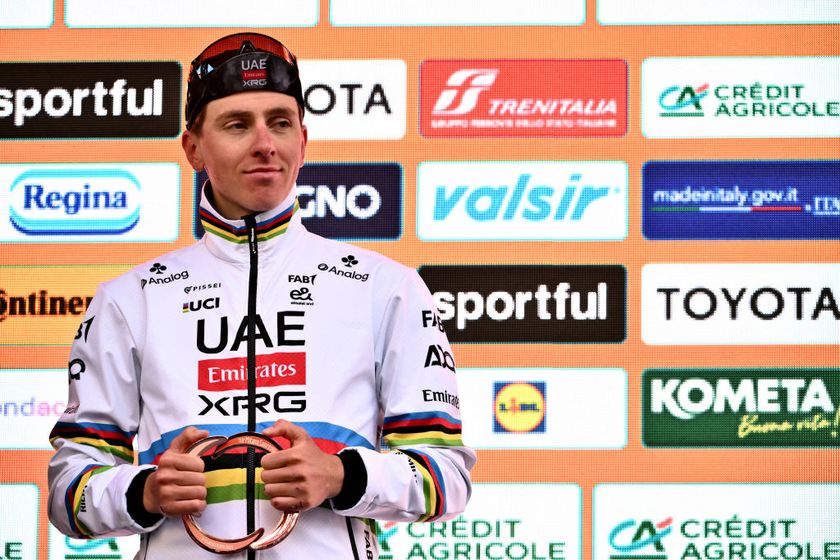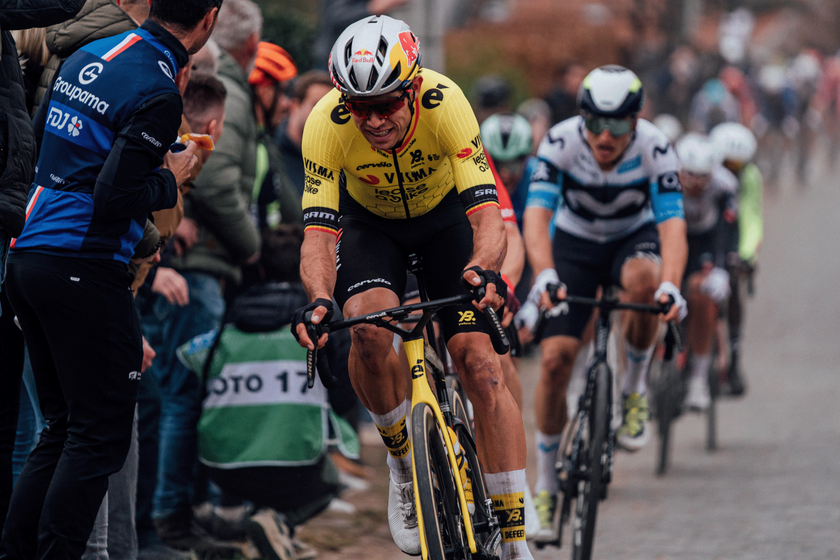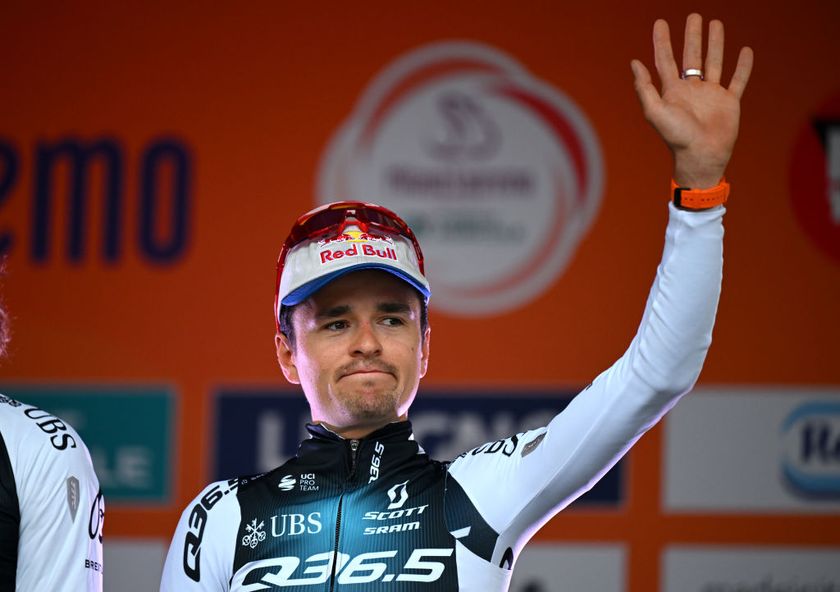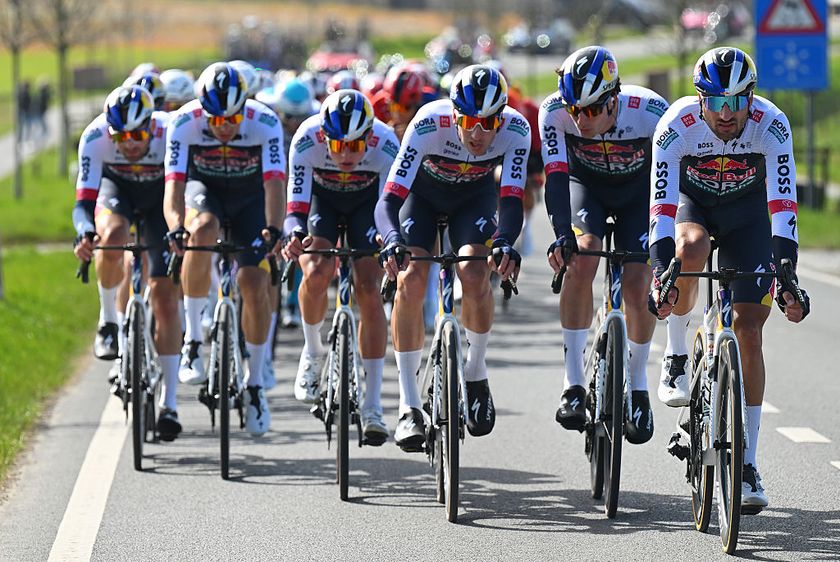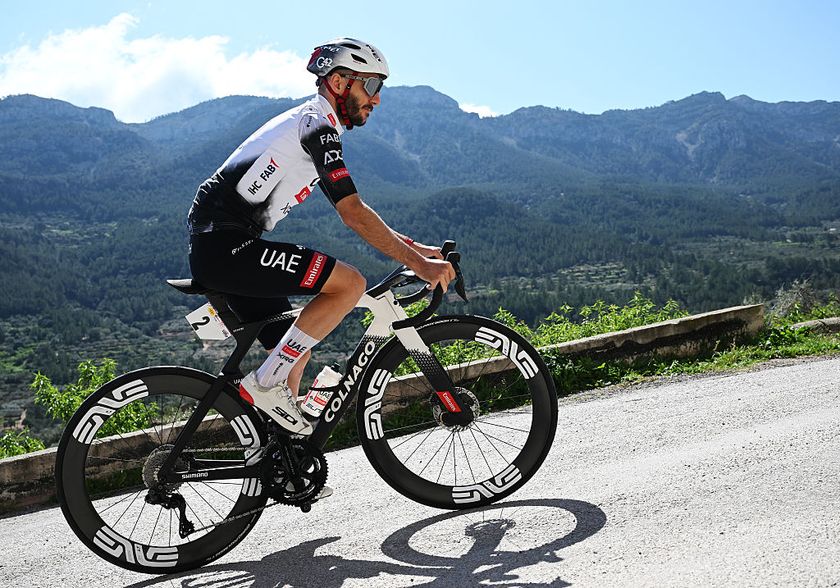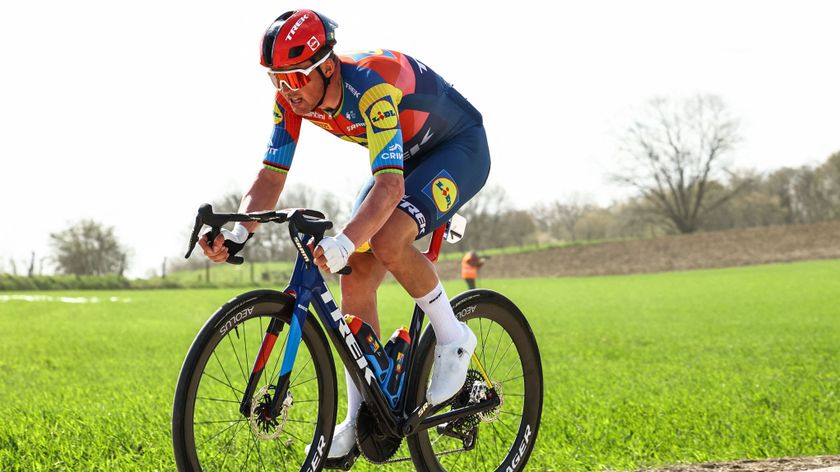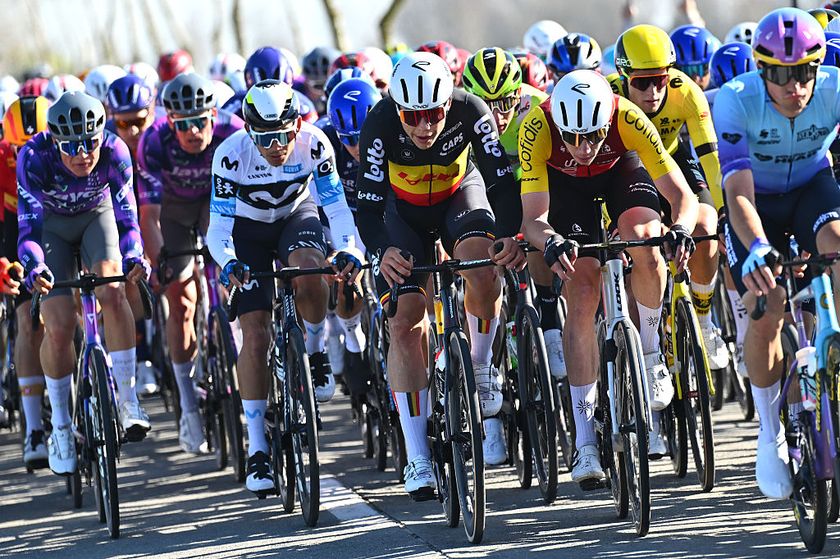Casar helps FDJ-BigMat youngsters
Frenchman takes aim at Giro d'Italia



Sandy Casar’s performance at the Tour of Oman was perhaps representative of his current role at FDJ-BigMat. With a number of promising French talents on the roster, elder statesmen such as Casar are expected to aid in their development, while also chipping in with results of their own.
The 33-year-old Casar succeeded on both counts on the queen stage to Jabal Al Akhdar, as he came home in third place after pacing Arnold Jeannesson up much of the final climb. The French pair went on the finish the race in fourth and fifth place overall.
“I’m happy to try and help them, they’re great talents,” Casar told Cyclingnews. “Thibaut Pinot is strong in the mountains and Arnold clearly climbs very well too. They’ve both shown early on that they can be up there with the best, and we’re looking to give them the right advice and help them save their efforts for the right moment to win big races.
“We saw that with Arnaud Démare at the Tour of Qatar already. Day by day, he learned from his little errors, because it’s obviously much different to racing with the amateurs. But he learned very quickly and he won on the last day.”
FDJ-BigMat manager Marc Madiot announced at the beginning of the year that he would look to give youngsters such as Pinot, Jeannesson and Démare as much as responsibility within the team as possible. Casar recalls his manager employing similar methods when he emerged to finish second at Paris-Nice ten years ago, and broadly agrees with the approach.
“Back in 2002, I remember that Marc told me just before the start of Paris-Nice that I would be leader,” Casar recalled. “I wasn’t expecting it as there were good riders on the team. It give me a bit of extra pressure, but then you battle even more to show that you deserve to be leader. Then when it comes to other races later on, you’ve learned to cope with that pressure.
“Dealing with pressure is really one of the biggest difficulties a leader must overcome. You need to learn how to manage it from an early stage.”
Get The Leadout Newsletter
The latest race content, interviews, features, reviews and expert buying guides, direct to your inbox!
Over quarter of a century has passed since France last produced a Tour de France winner, of course, and Casar acknowledged that for the likes of Pinot in particular, the weight of expectation borders on the unreasonable.
“I think that’s the hardest thing, to cope with the pressure of being considered a future winner of the Tour, even if you’ve never even ridden the Tour or a three-week race before,” Casar said. “It puts a lot of pressure on your shoulders if everybody is saying it. Of course, everybody dreams of it, but cycling is already hard enough without all that. That’s why it helps to make them leaders in smaller races first.”
A Giro return
While Paris-Nice will again be one of the main targets of Casar’s early season, he will also take advantage of FDJ-BigMat’s restored WorldTour status to ride the Tour of the Basque Country and Tour of Romandie before returning to the Giro d’Italia, the scene of his best-ever grand tour finish of 6th in 2006.
On that occasion, Ivan Basso romped to a facile overall victory that was instantly discredited by the revelation that he was a client of blood doping doctor Eufemiano Fuentes. Casar admitted that he would never have finished so high up in such a race had he not gained almost ten minutes in a break on stage 14 to Domodossola.
“That Giro was special,” Casar said. “I went there only thinking of winning a stage, I had no aims at all for the general classification. Then I got into a break in the second week, and that brought me up from 30th place into the top ten. After that I went for the GC, but without that break, I’d never have finished in 6th place.”
Casar’s final placing in Milan was by some distance the best by a French rider in the Giro that decade, but his Italian exploit failed to resonate in his home country. “In France, the only race of the year is the Tour really, so it didn’t have that much of an impact,” he said. “But it was the same last year, John Gadret was fourth in the Giro, and then Voeckler was fourth at the Tour.”
Indeed, while the consistent Casar has taken three Tour de France stage wins in recent years, he never enjoyed the same profile as Thomas Voeckler, even before the latter went platinum with his 2011 Tour display.
“He had the fortune to go well at the French races, the Tour and Paris-Nice. In France, they’re the only races that viewers really watch,” Casar said. “Me, I’m more of a stage race rider and less of a puncheur than him. He’s a very different rider, and on top of that, he has played it very well with the media. He succeeded in the right races. I did it at the Giro, he did it at the Tour, so naturally the impact is much bigger.”
For his part, Casar acknowledges that in a modern era that rewards specialists, all-rounders such as himself find their opportunities to win significantly restricted. “A huge percentage of races finish in a sprint, and then to win in the mountains, you have to be a really good climber,” he pointed. “When, like me, you’re between the two, you don’t really have a lot of chances in the year to win. Teams are also better organised now and because of that, there’s less spontaneity than before and it’s harder for breaks to go all the way.”
That said, Casar is in little doubt that his young teammates at FDJ-BigMat are in a somewhat more enviable position than he was when he turned professional at the beginning of 2000 after shining with the Jean Floch-Mantes team as an amateur. “We can see now that young riders are coming into the professional ranks and winning in their first year,” he noted. “We never really had that opportunity in my time.”

Barry Ryan was Head of Features at Cyclingnews. He has covered professional cycling since 2010, reporting from the Tour de France, Giro d’Italia and events from Argentina to Japan. His writing has appeared in The Independent, Procycling and Cycling Plus. He is the author of The Ascent: Sean Kelly, Stephen Roche and the Rise of Irish Cycling’s Golden Generation, published by Gill Books.
